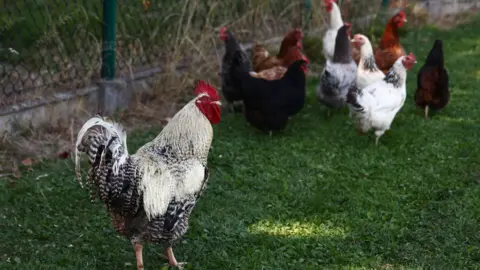 Ivy Farm/The Good Food Institute
Ivy Farm/The Good Food InstituteA new innovation centre dedicated to developing eco-friendly alternatives to meat has been set up at the University of Leeds.
Researchers behind the £38m unit, known as the National Alternative Protein Innovation Centre, said they aimed to help increase the UK’s food security and meet net zero requirements.
The centre would try to create ways of supplying proteins that had not come from animals, or animal products such as eggs, to the wider population, those behind it said.
While based in Leeds, it was also financially backed by the University of Sheffield, Imperial College London and the James Hutton Institute climate and farming research group.
Project leader Anwesha Sarkar said it was “imperative” for the planet’s future that the food industry reduced its “reliance” on animal farming.
She said: “Our long-term vision is to make alternative proteins mainstream for a sustainable planet.
“Our ambition is to deliver a world-leading innovation and knowledge centre which will put the UK at the forefront of the battle for population health equity and the fight against climate change.”
 Getty Images
Getty ImagesSources of alternative proteins include cereal plants, nuts, fungus such as mushrooms and lab-grown meat.
Professor Sarkar said acceptance of alternative proteins was currently “hindered” by people’s worries about taste, cost, health and safety and the potential impact on farmers.
But researchers said they believed that transitioning from animal meat could be a source of economic growth and create jobs, as well as making the planet healthier.
The centre would be staffed by 30 researchers across the four different institutions involved, those behind the project said.
Listen to highlights from West Yorkshire on BBC Sounds, catch up with the latest episode of Look North or tell us a story you think we should be covering here.


